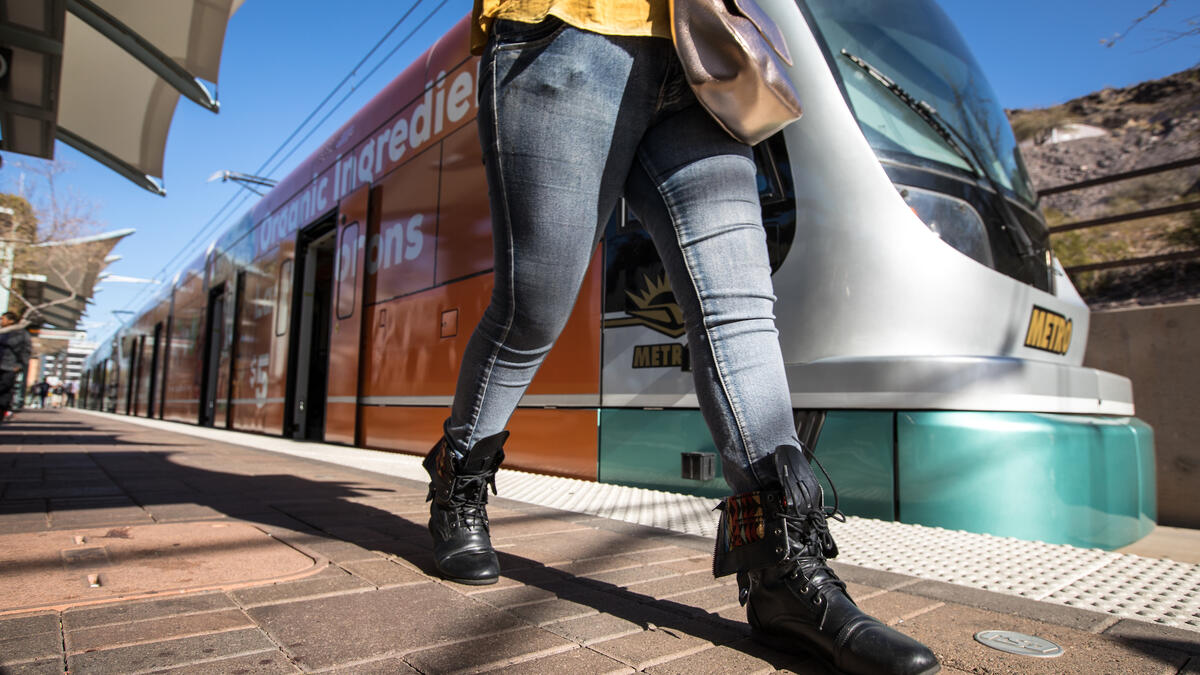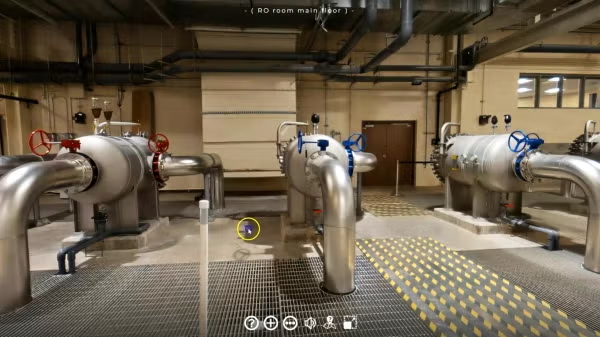Bikes, trains and no automobiles: First-ever Day Without Cars a success for ASU

If you happened to notice more maroon and gold than usual Tuesday on Tempe's bicycles, trains and buses, it wasn't a coincidence.
As part of a coordinated effort to further sustainable transportation efforts, nearly 400 Arizona State University students and staff members signed a pledge to take an alternate, non-single occupancy vehicle mode of transit to campus on March 27.
"I think there’s a lot of potential to continue to encourage sustainable transit use beyond this event, which is really meant to just be a pilot," said Lesley Forst, program manager at ASU's University Sustainability Practices. "We hope to run similar events like this one in future semesters."
University Sustainability Practices anticipates Day Without Cars becoming an annual event after Tuesday's success. Assisting in those efforts was a weeklong tabling event held March 19–23, which featured volunteers at on-campus parking structures busting transit myths and providing transportation guidance ahead of Tuesday's event.
Emmery Ledin, who helped lead the efforts for the event on behalf of the Staff Sustainability Committee, notes that sustainability isn't the only gain for those who start ditching their cars.
"Soon, at least on the Tempe campus, we will have less and less space for personal vehicles and parking for those vehicles," Ledin said. "So there are other benefits to taking alternative modes of transportation that extend beyond environmental sustainability."
Some Sun Devils who took part in Tuesday's event shared their stories using the #DayWithoutCars hashtag, which earned Sun Devil Rewards points for participants.
We asked Sun Devils how they get around the Tempe campus, and it turns out, no cars are needed. #DayWithoutCars. #FutureSunDevil pic.twitter.com/Mroe958xDi
— ASU Admissions (@FutureSunDevils) March 27, 2018
This initial Day Without Cars was targeted mainly at ASU staff members, as 75 percent of staff drive single occupancy vehicles (student use is about 28 percent). They also travel to campus five days a week and often go longer distances than students, making their carbon footprint about three times that of the average student.
"ASU has a goal to be carbon neutral from transportation by 2035, and right now, commuting contributes about 26 percent of our total GhG emissions," Forst said. "If we can get more staff to try sustainable transit options, even if it is only a few times a week, we could potentially have a significant impact on reducing our carbon emissions as an institution, not to mention the added benefits of reducing traffic congestion and air pollution."
The university's Day Without Cars served as a precursor to Earth Month, which will be recognized at ASU through various competitions and events.
More Environment and sustainability

Homes for songbirds: Protecting Lucy’s warblers in the urban desert
Each spring, tiny Lucy’s warblers, with their soft gray plumage and rusty crown, return to the Arizona desert, flitting through the mesquite branches in search of safe places to nest.But as urban…

Public education project brings new water recycling process to life
A new virtual reality project developed by an interdisciplinary team at Arizona State University has earned the 2025 WateReuse Award for Excellence in Outreach and Education. The national …

ASU team creates decision-making framework to improve conservation efficiency
Conserving the world’s ecosystems is a hard job — especially in times of climate change, large-scale landscape destruction and the sixth mass extinction. The job’s not made any easier by the fact…

